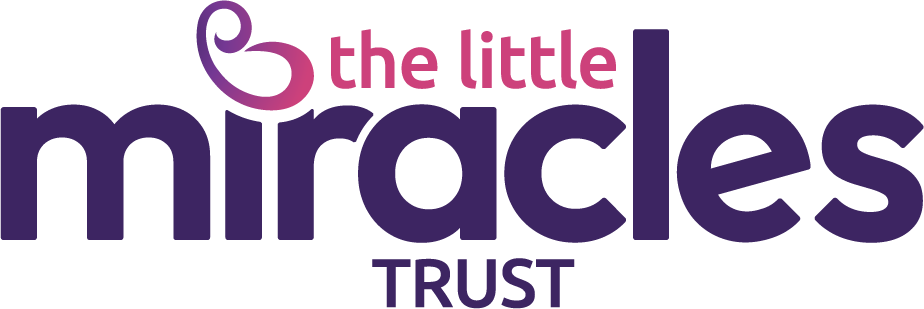Premature birth from a father’s perspective – as written by proud Dad Daniel
It was May. Our baby was due in August and were about to start antenatal classes the following week. We were having a party at our house to celebrate my birthday, when my partner Joy had some early contractions. At the time we thought it was braxton hicks — ‘practice contractions’ that in some cases can start in mid-late pregnancy. It had been a difficult pregnancy for Joy, constant nausea and vomiting, irregular bleeding requiring multiple scans and a biopsy, just in case it’s a miscarriage or, you know, cancer. Then some devastatingly painful gallstone attacks. So of course of top of that we’re going to have months of irregular, comparatively mild contractions.
I was still nursing a hangover the next afternoon, so it was news to me that we were going into the Hutt hospital to meet the midwife for a check up. After Joy had been poked and prodded by several, increasingly focused people, we were told that she was 7 centimeters dilated. In the hustle and bustle we had to ask what that meant. “Oh has no one told you, you’re definitely having the baby today”.
That early, the birth room is like a pit lane, with all hands on deck. At one point we counted ten staff in the room. There’s our midwife, a hospital midwife, consulting doctors, and even some students getting in on the action. Two specialists set up a station across from the bed with heat lamps and a slew of gadgets ready to resuscitate our baby. As a first time parent the whole process was foreign; I didn’t know anything about normal birth, let alone premature birth.
Giving birth is mostly waiting around, with long minutes between contractions. There’s not much to do as a dad, but I think some of my wisecracks went down okay. Between contractions I was ducking out to have quiet hallway conversations with the specialist (because there’s some things you don’t want to talk about in front of a mother giving birth). What are my daughter’s chances of survival? What happens if she’s not viable? Are there circumstances where it would be best not to resuscitate her?
When it finally happens it’s over so quickly. She’s whisked under the heat lamps and thankfully takes a first breath. Wrapped in plastic she’s flashed in front of mum, but she’s blue. “Is she breathing, is she breathing? is she breathing??!” “She will.” Then she’s rushed down the hall to baby ICU. We’re suddenly alone in an empty room. It’s all a bit surreal. Not quite how I’d expected to spend my Sunday afternoon.
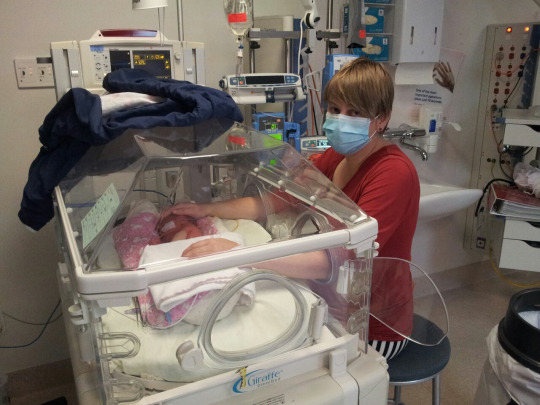 Our daughter was taken in an ambulance into Wellington hospital without us, Joy followed a few hours later when another one became available. I collected supplies and drove in. Joy was set up in a different ward, down the building from our baby. Joy was shattered. Physically and emotionally exhausted. I remember that first time walking down the long empty hall between wards, with Joy only able to shuffle along, tears streaming down her face.
Our daughter was taken in an ambulance into Wellington hospital without us, Joy followed a few hours later when another one became available. I collected supplies and drove in. Joy was set up in a different ward, down the building from our baby. Joy was shattered. Physically and emotionally exhausted. I remember that first time walking down the long empty hall between wards, with Joy only able to shuffle along, tears streaming down her face.
Those first few days were a bit of a nightmare. The shock from the sudden separation is intense, Joy’s exhausted but can’t sleep on the busy ward. Expressing milk is a mission to get going, but it feels like something concrete we can do for our baby. While the ward bustles, behind a curtain I sit on the bed and collect the first drops of colostrum beading out of Joy, with a tiny syringe.
NICU (baby intensive care) is a like another world; everyone is calm and quiet, talking to you in gentle tones, but it seems like every few minutes monitoring machines are blaring alarms. Your unbelievably small baby is under a thicket of sensors and intravenous lines, inside a plastic box.
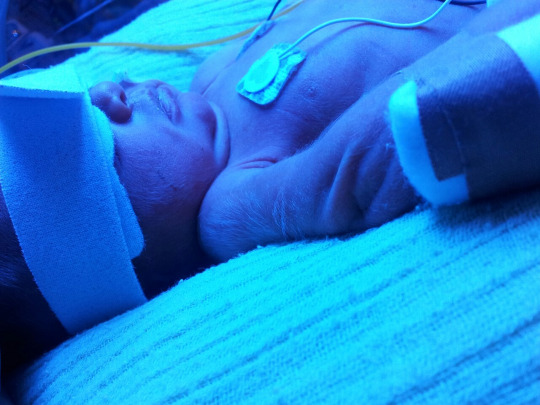 We were lucky to avoid complications, but it seemed like there were any number of unknown disasters that could have happened at any moment; infection, brain bleed, heart murmur, jaundice. You’ve got no idea what might happen tomorrow, or what the consequences might be. I’m sure everything was clearly explained, but nothing really sinks in.
We were lucky to avoid complications, but it seemed like there were any number of unknown disasters that could have happened at any moment; infection, brain bleed, heart murmur, jaundice. You’ve got no idea what might happen tomorrow, or what the consequences might be. I’m sure everything was clearly explained, but nothing really sinks in.
There are people who stand out in my memory. The kind and calm midwife in the birthing room with a dry sense of humor, who played along with my wisecracking approach to handling stress. The bubbly specialist who was about to take my newborn away from us, who gave me a glimpse of optimism “I’ve called ahead to tell them we’ve got a good one coming in”.
Our first NICU doctor had the calmest sense about him. He would quietly explain the latest invasive treatment for whatever had come up overnight. “So we ran a long IV line in from a vein in her thigh up into her heart” “Oh, this is standard practice?” “Yes, also would you like us to give her vitamin supplements, we need parental agreement for that.” When I saw him weeks later there didn’t seem to be adequate words for the gratitude I felt.
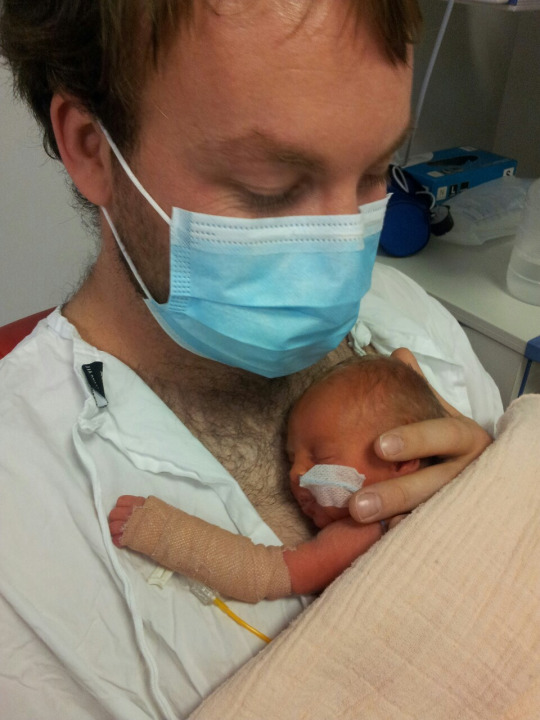 Having a newborn is exciting, exhausting, overwhelming, delightful, warm and humbling. Holding my daughter for the first time, almost a week in, was magical, the best feeling in the world. I felt at peace, so in love.
Having a newborn is exciting, exhausting, overwhelming, delightful, warm and humbling. Holding my daughter for the first time, almost a week in, was magical, the best feeling in the world. I felt at peace, so in love.
Being the proud new parent of a premature baby in hospital is an odd experience. I’m back at work, because there’s not much point in watching her sleep in an incubator all day. Most of the day I feel tired, but I’m not sure why, I thought I’d had a decent night’s sleep; and tense, a little tense, for no good reason. I feel like I need both a coffee and a whiskey.
After bluffing my way through the day, I eventually make it to the hospital, and wash my hands with soap and water, and then again with disinfectant. Then I make it to the incubator and there she is, my daughter, just chilling, like I left her. I just want to hold her, but I’ve got to wait for the nurse to do all this other stuff for other people’s babies and all the machines are beeping and it’s taking forever, gggarrrh the frustration!
Finally I get to cuddle her, and I lie back in the chair with this tiny baby on my chest, and practically fall asleep immediately I’m so relaxed. I realise I’ve been clenching my jaw and shoulders all day. Maybe it’s subconscious worry or something, but being there with her just feels so right.
I drive home buoyant but drained to make a tired dinner, and then struggle to wind down enough in time for bed. (And if I can’t sleep, I can visit for a cuddle at all hours, a dangerous encouragement to insomnia.) This becomes our normal for weeks on end.
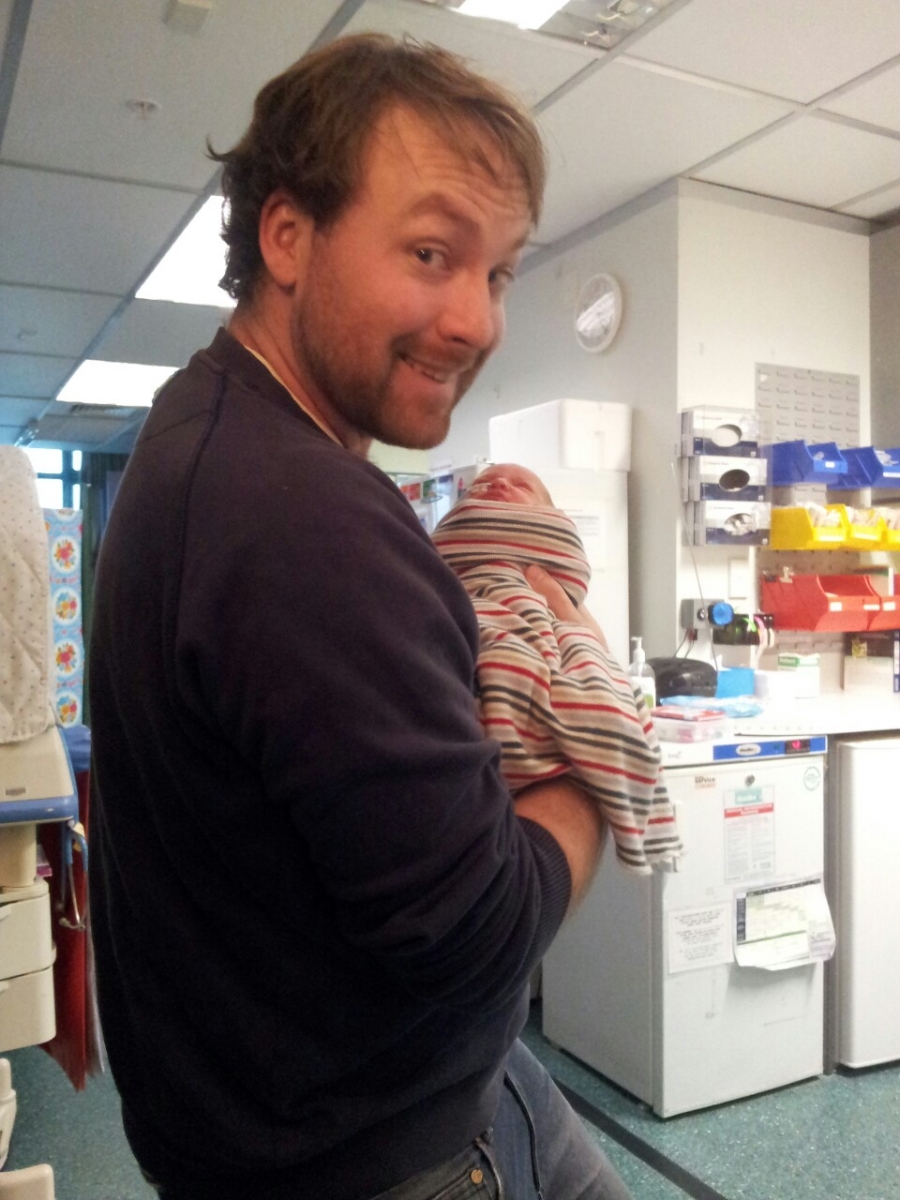 Because of all the sensors she’s attached to, I can’t move more than a metre or two when I hold her. Over a month in, when I finally get to hold her without the sensor lines for the first time, it feels incredible to be able to walk around with her in my arms. The day she moves out of an incubator into a cot it feels like we’ve won the lotto.
Because of all the sensors she’s attached to, I can’t move more than a metre or two when I hold her. Over a month in, when I finally get to hold her without the sensor lines for the first time, it feels incredible to be able to walk around with her in my arms. The day she moves out of an incubator into a cot it feels like we’ve won the lotto.
 When we finally get to take her home, happy and healthy, after two months in hospital, we’re over the moon.
When we finally get to take her home, happy and healthy, after two months in hospital, we’re over the moon.
It’s funny to look back now at photos of us feeling happy, confident we’d made it through the worst. It turns out that parenthood keeps on coming at you. The struggle to keep our tiny baby gaining weight, months of breastfeeding complications, that time our baby stopped breathing, fevers, reflux (when your baby vomits up its milk all the time; our carpet will never be the same), croup, months and months of severely disrupted sleep, and gallstone surgery for Joy. Some of these were related to the premature birth, others just the normal rigors of parenthood, and while others cemented the family motto “what are the chances?!”. It’s been an eventful couple of years; I’ve spent more time in the Emergency Department at the local hospital than I expected to. It turns out sometimes the light at the end of the tunnel is an oncoming train.
Combined with a difficult pregnancy and the ongoing drama, it has taken a while for us to bounce back. The physical toll and the mental strain seem to compound each other. Joy’s seen a counsellor to work through the trauma, grief and guilt that the experience threw up. It seems like the impact is starting to fade, but it’s still hard to consider having another child knowing that we might have to go through the whole experience again.
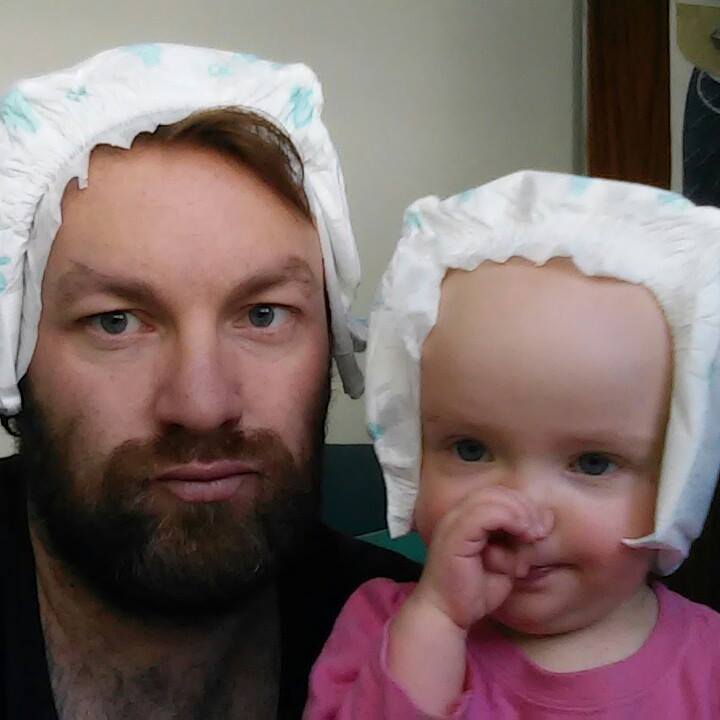
Looking back, the support from NICU and SCBU were amazing. So many excellent professionals working to care for our baby. We were also blessed to have an amazingly generous community of family and friends.
Two years on our daughter is happy, healthy and on track to catch up with her peers in due course. She’s a bit behind on walking, but is chatting away and really coordinated with her hands (so smart!). We’re incredibly grateful to the calm, knowledgeable people who worked around the clock to save and grow our amazing daughter.
**************************************************************
Another personal story that we found helpful when we were going through it.
If you’re not sure how best to help, you can’t really go wrong with anything thoughtful. We found practical support awesome: meals, cleaning, errands. We didn’t have a lot of energy to connect with people or respond to well wishers, but we did really appreciate the good wishes of our friends and family.
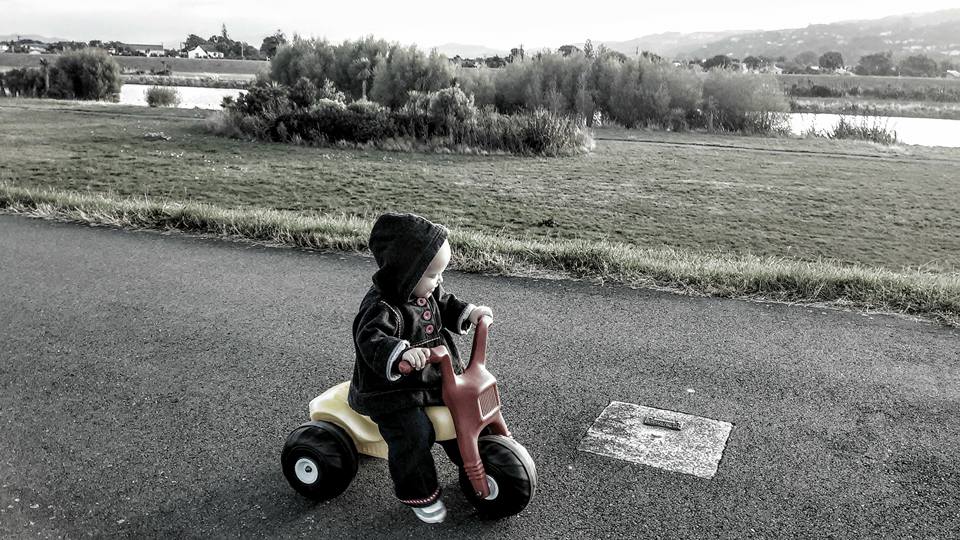
*** Thanks for sharing your story Daniel ***
If you would like to discuss sharing the story of your neonatal journey, we’d love to hear from you. Please email info@littlemiraclestrust.org.nz
Interested in how we support families going through the stress and anxiety of a neonatal journey?
Here’s a gallery of support examples.
